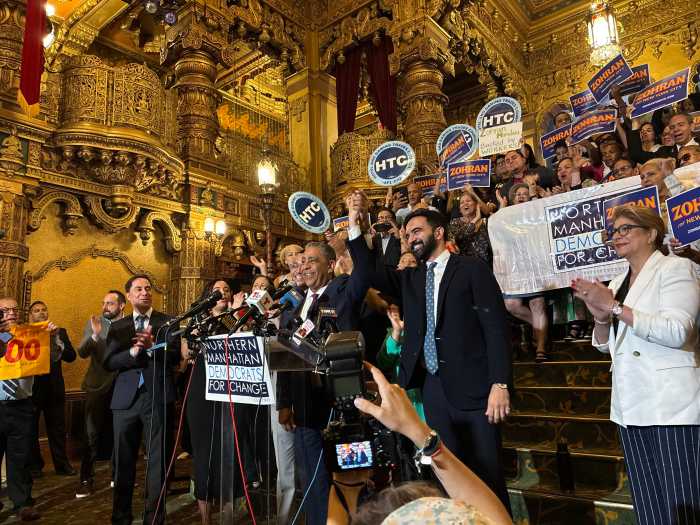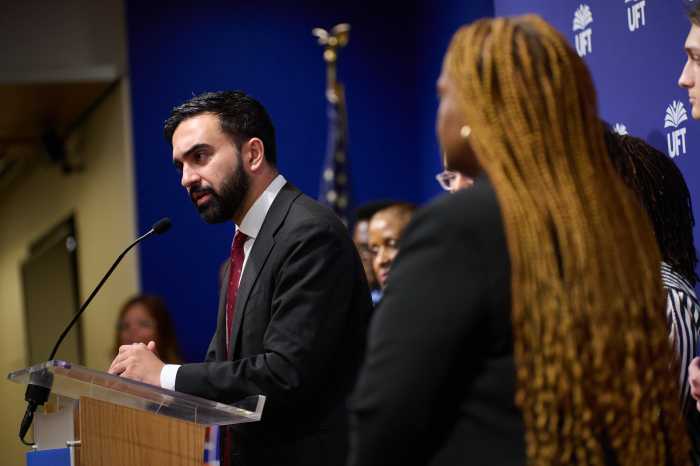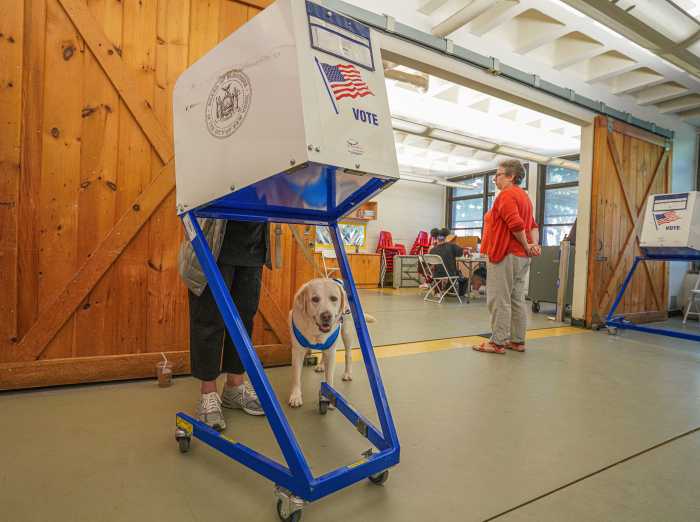It has been 184 years since the first Democratic National Convention in 1832 in Baltimore, where Andrew Jackson was nominated by the party.
At that time, the Republican party that grew into the one we know today had not yet been launched. The GOP officially formed in the 1850s.
This year, the Democratic delegates will convene at the Wells Fargo Center in Philadelphia from July 25 to July 28 to nominate Hillary Clinton. The last time the convention was held in Philadelphia was in 1948, when Harry S. Truman was nominated. The last two conventions that nominated President Barack Obama were held in Charlotte, North Carolina, and in Denver.
Here’s a look at what you can expect from this year’s convention:
How many delegates will be at the convention?
There are about 4,760 delegates headed to the convention this year.
Who will speak at the convention this year?
Speakers scheduled at this year’s convention include President Barack Obama, first lady Michelle Obama, Vice President Joe Biden and Sen. Bernie Sanders. Former president Bill Clinton and Chelsea Clinton will also speak.
A number of everyday Americans are also scheduled to speak. They include Karla Ortiz, the daughter of undocumented immigrants; Felicia Sanders and Polly Sheppard, survivors of the Mother Emanuel Church shooting in Charleston, South Carolina; and Jensen Walcott, who was fired from her job after she asked her boss why she was being paid less than her male counterpart.
What is the schedule at the convention?
Each day will feature a theme and certain number of speakers. Here are the themes and headline speakers each day:
Monday: United together: Putting families first
Headline speakers: Michelle Obama, Sanders and DREAMer Astrid Silva
Tuesday: A lifetime of fighting for children and families
Headline speakers: Bill Clinton; Mothers of the Movement, including Gwen Carr, mother of Eric Garner; and Lezley McSpadden, mother of Michael Brown.
Wednesday: Working together: A clear choice
Headline speakers: Obama and Biden
Thursday: Stronger together
Headline speakers: Hillary Clinton and Chelsea Clinton
What is the purpose of the convention?
The purpose is to officially nominate an individual to represent the party in the presidential election. It is also to establish a party platform. A draft of the platform was written by the Democratic National Platform Drafting Committee and will be presented to the convention for approval.
How does the voting work?
This year’s convention will officially name Hillary Clinton as the Democratic nominee for president. Delegates are either pledged to a candidate based on the outcomes of the state primaries and caucuses or they are superdelegates, who are free to vote for either candidate. Superdelegates include members of the DNC, Democratic senators and representatives, former Democratic presidents and vice presidents and Democratic governors.
According to delegate counts, Clinton secured more than 2,800 delegates, earning the majority she needed to beat Sanders.
When is the vice president selected?
Throughout history, vice presidents have been announced both at the convention and before. It is more common in recent election cycles for the presumptive nominee to announce his or her choice before the convention. Clinton will likely make the announcement after the Republican National Convention ends on July 18, according to reports.
Is the convention open to the public?
No, the convention is not open to the public. The event is only for the delegates, invited guests and the media. The public can purchase tickets to PoliticalFest, an interactive political exhibition, on Friday, July 22.
How many delegates are from New York?
There are 291 delegates representing New York at the convention this year. A full list was released by the DNC on July 15.
There are five to seven pledged delegates from each of the 27 congressional districts, making a total of 163. In New York, those delegates are awarded proportionally, using a complicated formula, to the candidates based on the outcome of each district’s primary. Another 84 at-large delegates and PLEOs, or party leaders and elected officials, who were selected to be delegates by the Democratic National Committee, were awarded to the candidates based on the outcome of the statewide election.
There are 44 superdelegates from New York. Notable New York superdelegates include Bill Clinton, Gov. Andrew Cuomo, Sen. Chuck Schumer, Sen. Kirsten Gillibrand and Rep. Charles Rangel. Mayor Bill de Blasio is a PLEO from New York.
Additionally, there will be 21 alternate delegates for New York.



































